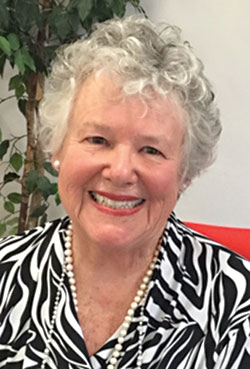
URBANNA — How do I explain the emptiness? The deep void that Father’s death had bequeathed me. Perhaps this will help explain it…
“But look, the morn in russet mantle clad, walks o’er the dew of yon high eastward hill!” How many times did Father greet me in the morning with his favorite quote from Shakespeare? I cannot count the times.
Or this from Browning: “… and whoever wakes in England, sees some morning unaware, but the lowest boughs and the brushwood sheaf, round the elm tree bole are tiny leaf, while the chaffinch sings on the orchard bough … in England now!”
Who can say why we miss a loved one? Who can put to words that something special we pine for that has now vanished forever? So, my heart ached for that special person who quoted from the great poets by heart as Father once did, that now left me feeling absent of heart.
Depression is a terrible thing. Pulitzer Prize winning author, William Styron, a cousin by marriage, suffered depression for many years. He told me once at a speaking event in Richmond that the “Black Dog” had come for a visit.
I was confused and at first thought he might have meant he had a new lab dog. Then I realized he meant that he was depressed. He later described his bout with depression as “darkness visible” which became a title for one of his books.
He used a perfect choice of words. After the lights in my life had turned off over grief from my father’s death in 2001, it seems as if I were living in a world of darkness. About a year later, when the lights magically had turned back on, it finally had hit me. I had been depressed. It was only then that I understood I had been living in a state of darkness visible.
That is the spooky nature of depression. One might not even know he is depressed, as somehow with suffering one simply hunkers down to the newly arrived darkness. It’s almost as if the sufferer falsely believes in some black region of the brain that he deserves to live one’s life in the dark zone simply because of the loss of a loved one.
But now the sun had come out again and my grief over my father’s death the previous year was behind me, I thought my troubles were over. All because of a new friendship struck up with a medical doctor who had moved to Middlesex County and become a close friend.
The irony is that the doctor did replace my father. We read poetry, looked through art books and marveled at the world’s great paintings, and discussed history, religion and politics. The same discussions I had enjoyed with my father all my life had returned to me.
It seemed a rare gift had been given to me.
But even more important to me was we wrote together. I had never had a writing partner, someone to share my ideas with, someone to brainstorm with, rather I had spent my life writing alone.
But there was a damaging component to our friendship. I became dependent on him for the constant inspiration that Father had once provided me. Somewhere deep in my consciousness I knew this was not a good thing. A creative person cannot rely on others for inspiration, but finally learn how to inspire oneself.
The doctor was much older than I and so the inevitable happened. He was diagnosed with a terminal illness and given less than a few months to live. I was stunned. Was I then to experience the suffering of not one death of a father, but two?
My dear husband and I were on a cruise to Russia when what I so dreaded came about. That night as our ship plowed through the stormy seas of November, and I sat reading Chekhov, I heard a pounding on my stateroom door. The sound was jolting, frightening, and, alarmed, I instantly thought of Edgar Allen Poe’s “The Raven.”
Unable to move, as if dreading some terrible event, I sat frozen as Chip opened the door to the message. My friend had died. Someone had called the ship with the devastating news.
Bad news travels fast. I looked at my watch. It had reached me on the North Sea off the coast of St. Petersburg just five hours after his death.
I walked out to the verandah and stared out at the stormy night and rolling seas watching the white foam caught in floodlights off the deck of our ship. How would I now, as Father had always said, “carry on, Mays?”
But, oddly, the initial depression from the loss of Father did not return. It was as if my friend had helped me over the really rough times, and in so doing, had strengthened me for the inevitable future.
And, standing by the railing that separated me from sure oblivion, I heard again Father’s voice reciting the bard … words that would always be with me …“this precious stone set in the silver sea, which serves it in the office of a wall, or as a moat defensive to a house, against the envy of less happier lands, this blessed plot, this earth, this realm…this England.”
And I knew I could carry on. (Conclusion)
© 2023



